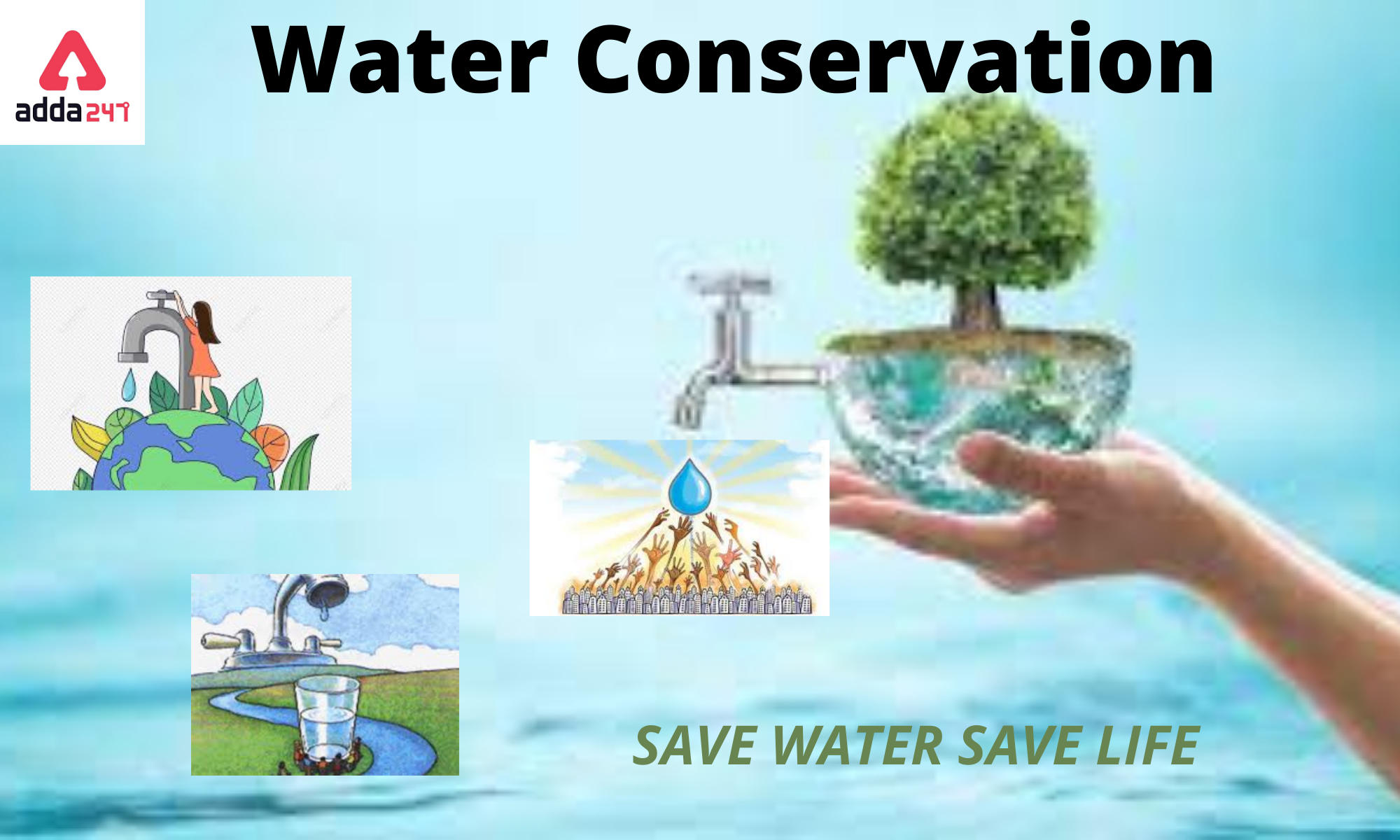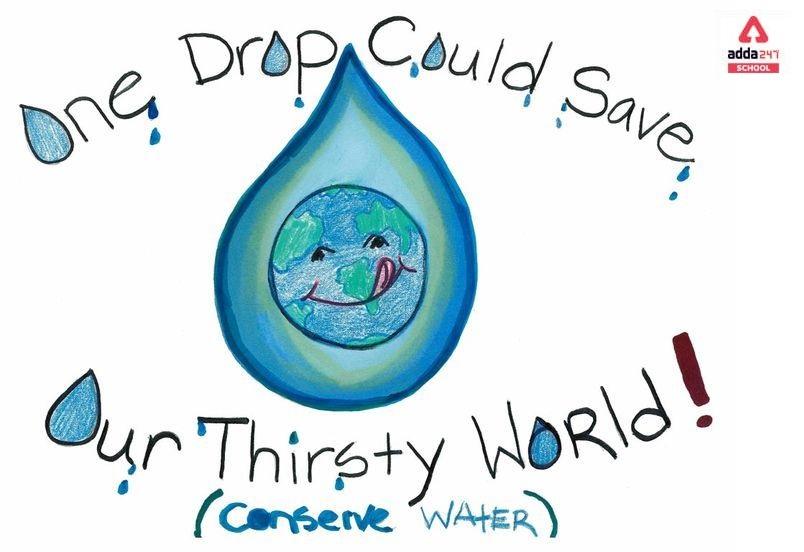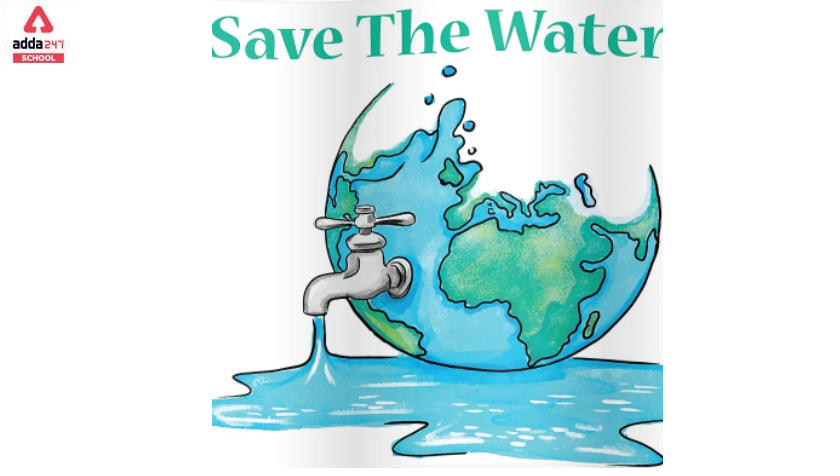Save Water Save Life Essay
The “Save Water Save Life Essay” is more than just a popular easy topic or slogan. ‘Save water to save life on Earth,’ this guideline has become the most vital requirement for all of mankind. To safeguard our planet, kids in schools must learn the necessity of water conservation from an early age. Water is required for the life of all living things on this planet, whether they are small worms, plants, or mature trees. Animals and plants cannot thrive in the absence of water. Water covers approximately 71% of the Earth’s surface. Unfortunately, just 3% of accessible water is freshwater. In this post, we give short and long essays on Save Water Save Life in various word counts to help you understand the significance of water in our lives and how to conserve it.
Save Water Save Life Essay 150 Words
Save Water Save Life is very necessary for the future. The most vital and exquisite natural resource on the planet is water. All life depends on it. Water is necessary for life. Water is essential not only for humans but also for the entire ecosystem. The existence of people and animals is nearly impossible without enough water. Water is the second most vital natural resource for any living being after fresh air.
Every living species on our planet, whether a little worm, a plant, or a fully-grown tree, requires water to survive. Water is essential for animals and plants to exist. Water covers over 71 percent of the Earth’s surface. Unfortunately, freshwater makes up only 3% of the available water. Approximately two-thirds of all freshwater is frozen.
Frozen glaciers and ice caps hold about two-thirds of the world’s freshwater. The remainder of the modest amount is available as groundwater and surface water. For a variety of reasons, we are completely reliant on water. Agriculture makes use of water to irrigate crops. Water is used in our homes for drinking, cooking, cleaning, bathing, and other activities. Recreational activities take place on the water.
Water is utilized in industries as a coolant, solvent, and in other production processes. Water is used to generate hydroelectric power. Navigation and cargo transportation are also done on the water. This demonstrates how water is the most important component of life, and that every drop is necessary for survival. As a result, water conservation Save Water Save Life is important.
Save Water Save Life Essay 250 Words in English
Save Water Save Life, Water conservation is critical to the survival of life on this planet. Drinking, bathing, agriculture, irrigation, hospitality, manufacturing, and other basic uses of water are all important. Water increases metabolism and blood circulation in the human body.
Water is home to the entire aquatic ecosystem. It is a haven for all aquatic creatures. After land and air, water is a major mode of transportation. Saliva secretion and oxygen delivery to our cells are both aided by water. Some countries have plentiful water resources for their citizens and serve them, whereas others lack natural resources even for survival. Freshwater scarcity has become a hazard to human survival. Water quality and quantity, according to some scientists, are deteriorating day by day.
Although about 71% of the Earth’s surface is covered in water, the quality is such that we cannot use it for domestic purposes. People in particular areas are susceptible to many water-borne diseases, including Eluru, which are caused by contaminated water. These are eye-opening examples that must be taken seriously in order to improve living conditions for ourselves and future generations.
The following are the causes of freshwater scarcity – Water use increases as the population grows. Excessive water waste on a daily basis. The problem of efficient garbage disposal has grown in tandem with the fast rise of industries. These companies’ waste products contain extremely hazardous materials that pollute rivers and other bodies of water.
Pesticides and chemical fertilisers used to treat crops harm the water supply. Waterborne diseases such as cholera, jaundice, and typhoid are caused by sewage waste thrown into rivers, making the water unfit for drinking and washing. The use of plastics and their negligent disposal in water bodies has an impact on aquatic life, further disrupting the ecology.
Another major cause of water scarcity on Earth is global warming. According to various studies, the globe will confront increased water scarcity due to global warming until the year 2050. We must now be conscious of the threat of freshwater depletion and take appropriate efforts to prevent it. so all have to Save Water Save Life.
Save Water Save Life Essay in 10 Lines
Save Water Save Life Essay in 10 lines is written below.
- Water conservation is a pressing issue. Due to extreme weather conditions, several places are experiencing severe water scarcity, resulting in reduced rainfall and groundwater depletion.
- Groundwater is either unsuitable or overused in other parts of the earth. Groundwater is being misused, resulting in water scarcity, as the world’s population grows, as do industry and globalization.
- We rely entirely on water for a variety of purposes. Water is used in agriculture to irrigate crops. Water is used for drinking, cooking, cleaning, bathing, and other household activities.
- Water is utilized in industries as a coolant, solvent, and for other production reasons. Water is used to generate hydroelectricity. Water is also used for navigation and cargo transportation.
- This demonstrates how water is the most important component of life and how every drop of water is necessary for survival. As a result, conserving water is critical to preserving life on Earth.
- According to data from the World Health Organization (WHO), many people on the earth do not have access to safe, clean drinking water.
- These circumstances are deteriorating by the day, and we require an emergency plan to address them.
- To reduce water scarcity, every individual on this planet and every country’s government must make a variety of collective efforts.
- The government and citizens must take the initiative to raise awareness and encourage “water conservation.” The Modi government in India launched one such campaign, “JANSHAKTI FOR JALSHAKTI.” This programme began as a way to work for a better future.
- Water is essential for the survival of all living organisms on this planet. If we do not prioritize water saving and conservation, future generations will experience water scarcity.
Essay on Save Water Save Life (Long)
Here we are presenting a long essay on “Save water save life” with subpoints.
Save Water Projects in India
Save Water, Water conservation should be governed by rigorous government regulations. The government and citizens must take the lead in raising awareness and promoting “water conservation.”
- “JANSHAKTI FOR JALSHAKTI” was one of the Modi government’s initiatives in India. This Save Water Save Life programme started as a way to work toward a better future.
State Government Initiatives to save water
Some state governments have pursued the following initiatives:
- By avoiding waterlogging and repairing drain leakage, the Punjab government helped to conserve water resources.
- The Rajasthan government took the initiative to build small ponds, which aided the Rajasthani people in a variety of ways.
- Telangana villages have built water tanks to store rainfall for future use.
These states should serve as an example to others, encouraging them to conserve clean water, bodies of water, and groundwater. Save Water Save Life Water conservation should and is the responsibility of every human being who lives on this planet.
Strategies to Save Water
There are numerous strategies to conserve water and prevent pollution: Every day, be responsible and save water. Avoid wasting water by only using the amount needed. We must conserve water.
- For washing garments, we should use a washing machine to its utmost capacity. While washing our hands and faces, we should not leave the tap running.
- To reduce evaporation, we should water plants in the evening or early morning. We should develop plans to collect rainwater on rooftops and reuse it for domestic uses.
- Rainwater collection should be adopted by larger communities and farmers. Instead of discharging industrial trash into rivers, it should be appropriately treated.
- We should cease using plastics and properly dispose of them. We can raise public awareness about water issues through social campaigns and other means.
- We should start teaching our children about water conservation at a young age.
- Water reuse is a significant strategy to conserve and prevent water scarcity. Bathwater can be reused for gardening or cleaning. Rainwater harvesting is the process of collecting and storing rainwater for later use.
- Groundwater conservation is another key approach for preserving and utilizing groundwater in the future. Waterlogging is avoided.
The Water Conservation Slogan is
“Save Water Save Life”
Save Water Save Life Water Conservation Poster
Conservation of water
Water is an essential and finite resource crucial for the survival of all living beings on our planet. Despite its significance, water scarcity has become a pressing global concern. It is essential that we recognize the value of water and take concrete steps to conserve it for the well-being of current and future generations. This essay explores the importance of saving water and suggests practical measures to conserve this precious resource.
- Importance of Water Conservation: Water is the foundation of life and sustains ecosystems, agriculture, industries, and human well-being. However, the world is witnessing a growing water crisis due to factors like population growth, climate change, pollution, and unsustainable water usage. By conserving water, we can ensure adequate supply, preserve aquatic biodiversity, and protect our environment.
- Consequences of Water Scarcity: Water scarcity can lead to dire consequences for both people and the environment. Communities may face water shortages, affecting their health, hygiene, and agricultural productivity. Droughts can devastate crops, leading to food insecurity. Additionally, wildlife habitats and ecosystems suffer, causing a ripple effect on the entire ecosystem.
- Water-Wasting Habits to Avoid: To conserve water, we must be mindful of our daily habits. Simple measures like fixing leaky faucets, using efficient appliances, and turning off taps while brushing or washing dishes can save substantial amounts of water. It is essential to raise awareness about water conservation in households, schools, and communities.
- Sustainable Agriculture and Water Management: Agriculture is a significant consumer of water. Implementing efficient irrigation techniques, such as drip irrigation and rainwater harvesting, can optimize water usage in farming. Using drought-resistant crops and practicing sustainable agriculture can also play a vital role in water conservation.
- Industrial Water Efficiency: Industries should adopt water-efficient technologies and processes to reduce their water footprint. Reusing and recycling water in manufacturing processes can significantly minimize water consumption and pollution.
- Rainwater Harvesting: Rainwater harvesting is an effective technique to capture and store rainwater for future use. It can be as simple as collecting rainwater in barrels for gardening or more sophisticated systems for household or community use. Rainwater harvesting promotes self-sufficiency and reduces the burden on water supply systems.
- Protecting Water Bodies: Lakes, rivers, and aquifers are valuable natural resources that require protection. Preventing pollution, illegal dumping, and over-extraction of groundwater are essential steps to safeguard these water bodies. Active participation in community initiatives and policy advocacy can make a significant impact in this regard.
Water is not an infinite resource, and its sustainable management is crucial for the survival of life on Earth. Saving water is a collective responsibility, and every individual can contribute to water conservation through small but impactful actions. By valuing water, adopting sustainable practices, and raising awareness about its importance, we can ensure a water-secure future for generations to come. Let us join hands to protect this invaluable resource and build a more sustainable world for all.
Water Conservation Drawing
Conclusion
Save Water Save Life, We couldn’t fathom living without water. Unfortunately, mankind has ignored this priceless gift from God. Water conservation is essential for survival. Water is required for the survival of all living species on this planet. Our future generations will experience water scarcity if we do not prioritize water conservation and conserving. so everybody has to Save Water Save Life.
| Water = Life, Conservation = Future! |
Save Water Save Life Essay in Hindi
इस ग्रह पर जीवन के अस्तित्व के लिए जल संरक्षण महत्वपूर्ण है। पीने, स्नान, कृषि, सिंचाई, आतिथ्य, निर्माण और पानी के अन्य बुनियादी उपयोग सभी महत्वपूर्ण हैं। पानी मानव शरीर में चयापचय और रक्त परिसंचरण को बढ़ाता है। जल पूरे जलीय पारिस्थितिकी तंत्र का घर है। यह सभी जलीय जीवों का आश्रय स्थल है। भूमि और वायु के बाद जल परिवहन का एक प्रमुख साधन है। लार स्राव और हमारी कोशिकाओं तक ऑक्सीजन पहुंचाना दोनों ही पानी से सहायता प्राप्त करते हैं। कुछ देशों में अपने नागरिकों के लिए प्रचुर मात्रा में जल संसाधन हैं और उनकी सेवा करते हैं, जबकि अन्य में जीवित रहने के लिए भी प्राकृतिक संसाधनों की कमी है। मीठे पानी की कमी मानव अस्तित्व के लिए खतरा बन गई है। कुछ वैज्ञानिकों के अनुसार पानी की गुणवत्ता और मात्रा दिन-ब-दिन खराब होती जा रही है।
यद्यपि पृथ्वी की सतह का लगभग 71 प्रतिशत भाग जल से ढका हुआ है, गुणवत्ता ऐसी है कि हम इसे घरेलू प्रयोजनों के लिए उपयोग नहीं कर सकते हैं। विशेष क्षेत्रों के लोग एलुरु सहित कई जल जनित बीमारियों के प्रति संवेदनशील हैं, जो दूषित पानी के कारण होता है। ये आंखें खोलने वाले उदाहरण हैं जिन्हें गंभीरता से लिया जाना चाहिए ताकि हमारे और आने वाली पीढ़ियों के लिए रहने की स्थिति में सुधार हो सके। मीठे पानी की कमी के निम्नलिखित कारण हैं: जैसे-जैसे जनसंख्या बढ़ती है, पानी का उपयोग बढ़ता जाता है। रोजाना अत्यधिक पानी की बर्बादी। उद्योगों के तेजी से बढ़ने के साथ-साथ कुशल कचरा निपटान की समस्या बढ़ गई है। इन कंपनियों के अपशिष्ट उत्पादों में अत्यंत खतरनाक सामग्री होती है जो नदियों और पानी के अन्य निकायों को प्रदूषित करती है।
फसलों को उपचारित करने के लिए प्रयोग किए जाने वाले कीटनाशक और रासायनिक उर्वरक पानी की आपूर्ति को नुकसान पहुंचाते हैं। हैजा, पीलिया और टाइफाइड जैसे जलजनित रोग नदियों में फेंके गए सीवेज कचरे के कारण होते हैं, जिससे पानी पीने और धोने के लिए अनुपयुक्त हो जाता है। प्लास्टिक के उपयोग और जल निकायों में उनके लापरवाही से निपटान से जलीय जीवन पर प्रभाव पड़ता है, जिससे पारिस्थितिकी और बाधित होती है। पृथ्वी पर पानी की कमी का एक अन्य प्रमुख कारण ग्लोबल वार्मिंग है। विभिन्न अध्ययनों के अनुसार, वर्ष 2050 तक ग्लोबल वार्मिंग के कारण दुनिया में पानी की कमी का सामना करना पड़ेगा। अब हमें मीठे पानी की कमी के खतरे के बारे में जागरूक होना चाहिए और इसे रोकने के लिए उचित प्रयास करना चाहिए।
जल संरक्षण के तरीके
जल संरक्षण एक ज्वलंत मुद्दा है। चरम मौसम की स्थिति के कारण, कई स्थानों पर पानी की गंभीर कमी का सामना करना पड़ रहा है, जिसके परिणामस्वरूप कम वर्षा और भूजल की कमी हो रही है। भूजल या तो अनुपयुक्त है या पृथ्वी के अन्य भागों में अत्यधिक उपयोग किया जाता है। भूजल का दुरुपयोग किया जा रहा है, जिसके परिणामस्वरूप दुनिया की आबादी बढ़ने के साथ-साथ उद्योग और वैश्वीकरण में पानी की कमी हो रही है। विश्व स्वास्थ्य संगठन (डब्ल्यूएचओ) के आंकड़ों के अनुसार, पृथ्वी पर बहुत से लोगों के पास सुरक्षित, स्वच्छ पेयजल उपलब्ध नहीं है। ये परिस्थितियाँ दिन-ब-दिन बिगड़ती जा रही हैं, और हमें इनसे निपटने के लिए एक आपातकालीन योजना की आवश्यकता है। पानी की कमी को कम करने के लिए इस ग्रह पर हर व्यक्ति और हर देश की सरकार को कई तरह के सामूहिक प्रयास करने होंगे।
भारत में जल संरक्षण परियोजना
जल संरक्षण कठोर सरकारी नियमों द्वारा शासित होना चाहिए। सरकार और नागरिकों को जागरूकता बढ़ाने और “जल संरक्षण” को बढ़ावा देने का बीड़ा उठाना चाहिए। “जलशक्ति के लिए जनशक्ति” भारत में मोदी सरकार की पहलों में से एक थी। यह कार्यक्रम बेहतर भविष्य की दिशा में काम करने के तरीके के रूप में शुरू हुआ। कुछ राज्य सरकारों ने निम्नलिखित पहल की हैं: जलजमाव से बचने और नाले के रिसाव की मरम्मत करके, पंजाब सरकार ने जल संसाधनों के संरक्षण में मदद की। राजस्थान सरकार ने छोटे तालाब बनाने की पहल की, जिससे राजस्थानी लोगों को कई तरह से मदद मिली। तेलंगाना के गांवों ने भविष्य में उपयोग के लिए बारिश को स्टोर करने के लिए पानी के टैंक बनाए हैं।
इन राज्यों को दूसरों के लिए एक उदाहरण के रूप में काम करना चाहिए, उन्हें जल, जल निकायों और भूजल को संरक्षित और स्वच्छ करने के लिए प्रोत्साहित करना चाहिए। जल संरक्षण इस ग्रह पर रहने वाले प्रत्येक मनुष्य की जिम्मेदारी होनी चाहिए और होनी चाहिए। जल संरक्षण और प्रदूषण को रोकने के लिए कई रणनीतियाँ हैं: हर दिन जिम्मेदार बनें और पानी बचाएं। केवल आवश्यक मात्रा का उपयोग करके पानी बर्बाद करने से बचें। हमें जल संरक्षण करना चाहिए। कपड़े धोने के लिए हमें वॉशिंग मशीन का इस्तेमाल पूरी क्षमता से करना चाहिए। हाथ और चेहरे धोते समय हमें नल को चालू नहीं छोड़ना चाहिए। वाष्पीकरण को कम करने के लिए हमें पौधों को शाम या सुबह जल्दी पानी देना चाहिए। हमें छतों पर वर्षा जल एकत्र करने और घरेलू उपयोग के लिए इसका पुन: उपयोग करने की योजना विकसित करनी चाहिए।
बड़े समुदायों और किसानों द्वारा वर्षा जल संग्रह को अपनाया जाना चाहिए। औद्योगिक कचरे को नदियों में छोड़ने के बजाय उसका उचित उपचार किया जाना चाहिए। हमें प्लास्टिक का उपयोग बंद कर देना चाहिए और उसका उचित तरीके से निपटान करना चाहिए। हम सामाजिक अभियानों और अन्य माध्यमों से पानी के मुद्दों के बारे में जन जागरूकता बढ़ा सकते हैं। हमें अपने बच्चों को छोटी उम्र से ही जल संरक्षण के बारे में पढ़ाना शुरू कर देना चाहिए। जल की कमी को बचाने और रोकने के लिए जल का पुन: उपयोग एक महत्वपूर्ण रणनीति है। नहाने के पानी का बागवानी या सफाई के लिए पुन: उपयोग किया जा सकता है। वर्षा जल संचयन आईएनजी बाद में उपयोग के लिए वर्षा जल को इकट्ठा करने और संग्रहीत करने की प्रक्रिया है। भूजल संरक्षण भविष्य में भूजल के संरक्षण और उपयोग के लिए एक और महत्वपूर्ण दृष्टिकोण है। जलभराव से बचा जाता है।
Related Posts:











 CUET UG Final Answer Key 2025 Revised, D...
CUET UG Final Answer Key 2025 Revised, D...
 DU Cut off 2025, Delhi University Expect...
DU Cut off 2025, Delhi University Expect...
 OUAT Result 2025 OUT @ouat.nic.in: Check...
OUAT Result 2025 OUT @ouat.nic.in: Check...









